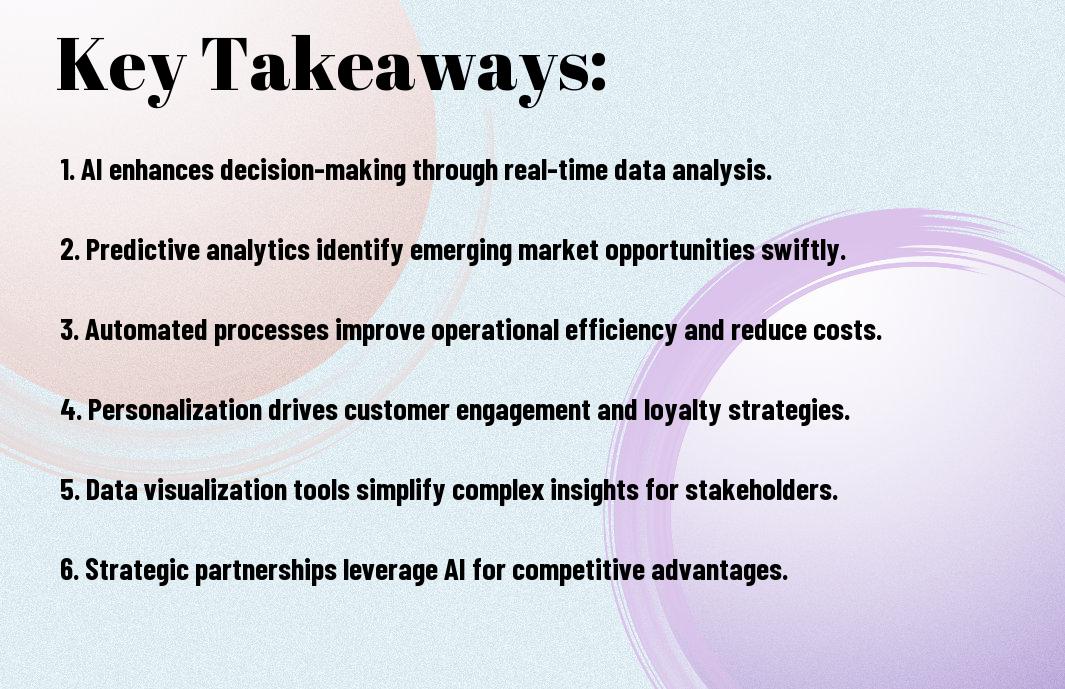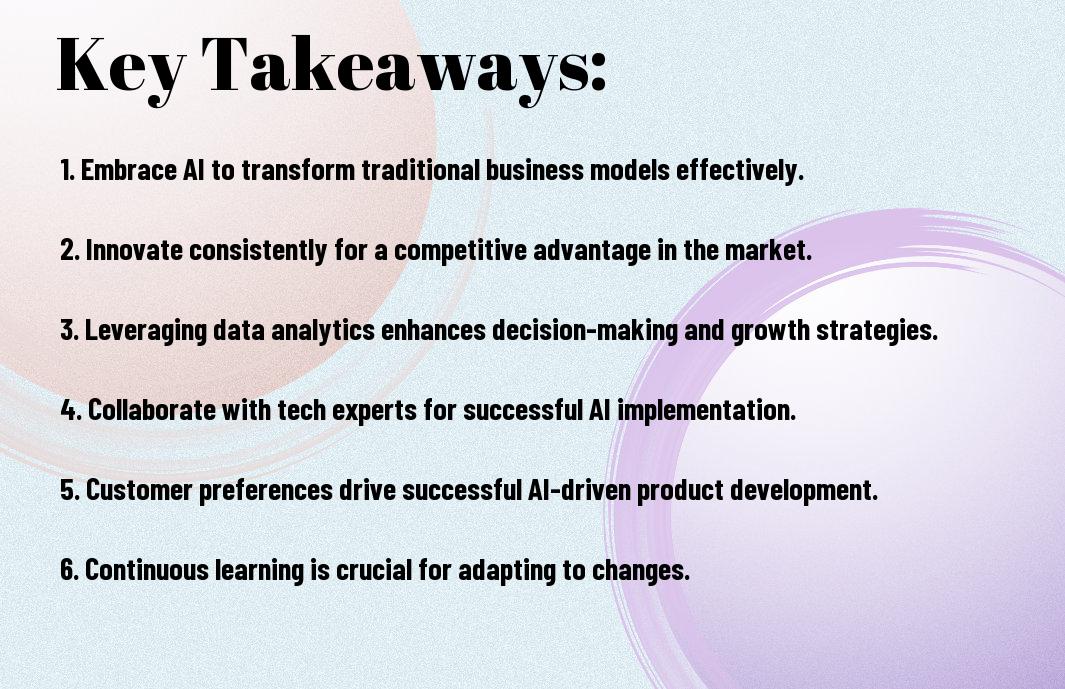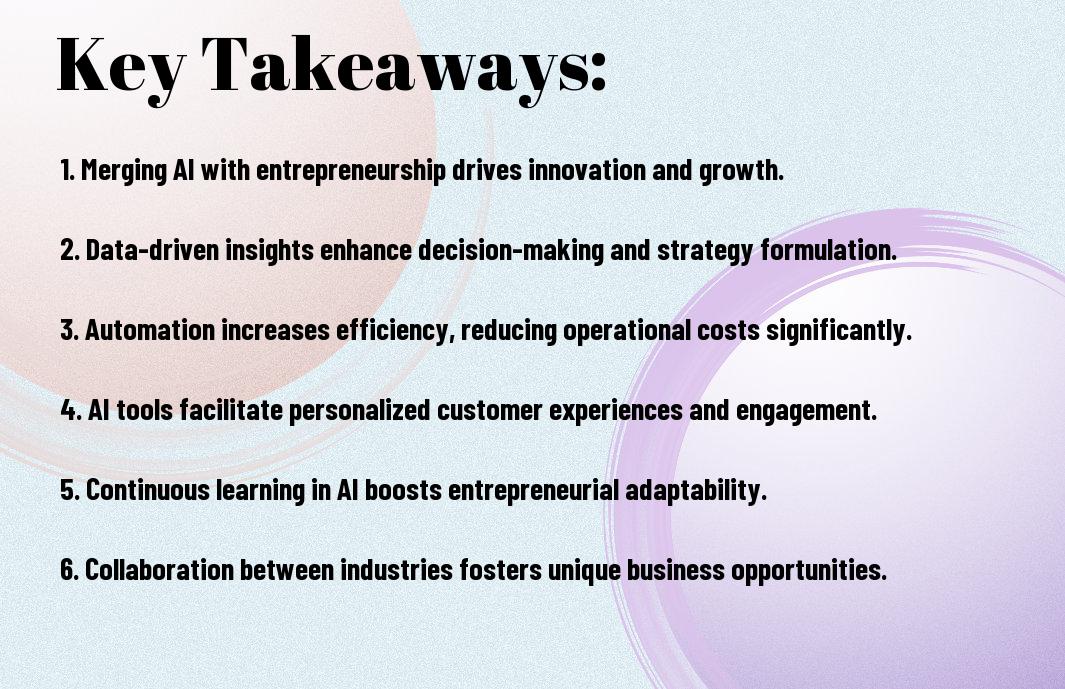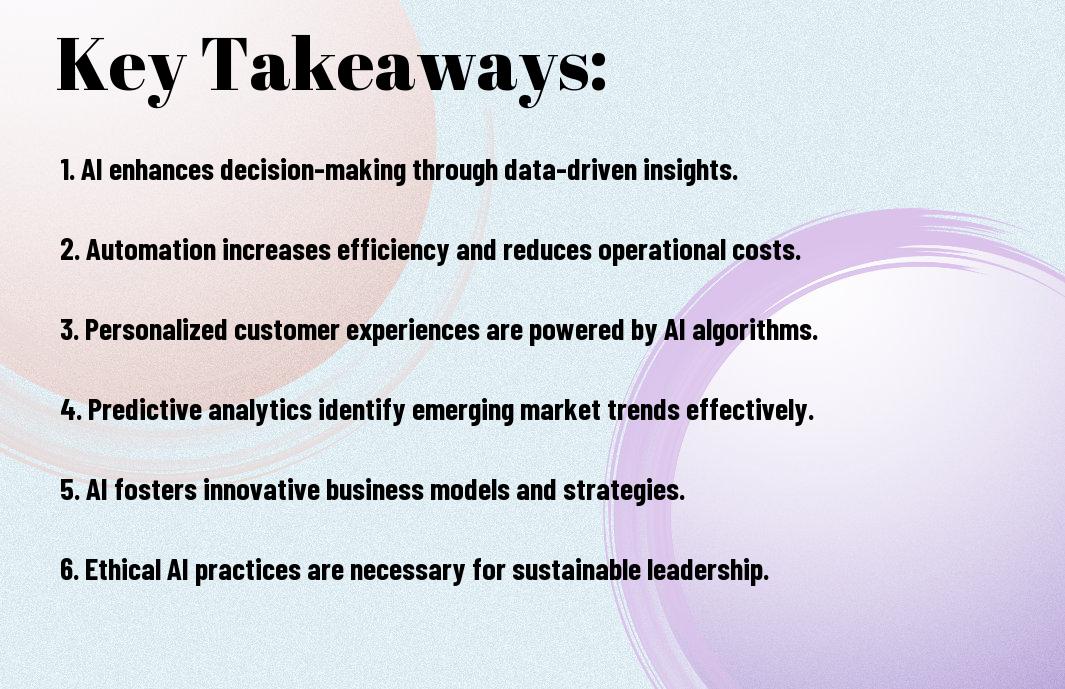As you navigate the complex landscape of modern entrepreneurship, you’re likely aware of the significant impact data can have on your business. You understand that making informed decisions is key to driving growth and increasing wealth. With the advent of Artificial Intelligence (AI), you now have the tools to analyze vast amounts of data, identifying trends and patterns that can inform your strategic decisions, ultimately fueling your wealth creation goals. You’re about to discover how AI can revolutionize your approach to entrepreneurship.
Key Takeaways:
- The book “The Data-Driven Entrepreneur” highlights the significance of leveraging artificial intelligence (AI) in making informed business decisions, which can lead to strategic wealth creation by identifying new opportunities and mitigating potential risks.
- It emphasizes the importance of data analysis in driving entrepreneurial success, suggesting that entrepreneurs who effectively utilize data and AI can gain a competitive edge in the market and make more accurate predictions about future trends and consumer behaviors.
- The integration of AI in business operations can automate routine tasks, enhance operational efficiency, and provide insights that help entrepreneurs develop innovative products and services, ultimately leading to sustainable business growth and increased profitability.
The Modern Entrepreneurial Landscape
Before you initiate on your entrepreneurial journey, it’s necessary to understand the current landscape. You need to be aware of the latest trends and technologies that can fuel your strategic wealth creation. The modern entrepreneurial landscape is characterized by rapid technological advancements, changing consumer behaviors, and increasing competition.
The Evolution of Data-Driven Decision Making
At this point, you should recognize that data-driven decision making has become the norm. You are now expected to make informed decisions based on data analysis and insights. This shift has transformed the way you approach business, allowing you to optimize operations, improve customer experiences, and drive growth.
AI as the New Business Frontier
Business leaders like you are now leveraging AI to gain a competitive edge. You are using AI-powered tools to analyze market trends, predict customer behavior, and identify new opportunities. This enables you to make strategic decisions and drive innovation in your business.
In addition, as you explore the potential of AI, you will discover that it can help you automate routine tasks, freeing up time for more strategic and creative work. You can use AI to analyze vast amounts of data, identify patterns, and gain valuable insights that can inform your business decisions. By embracing AI, you can stay ahead of the competition and achieve your goals in today’s fast-paced business environment.


Essential AI Tools for Wealth Creation
One of the key factors in achieving strategic wealth creation is leveraging the right AI tools. You will need to explore various options to find the ones that best suit your business needs, and then integrate them into your operations to maximize your returns.
Predictive Analytics Platforms
By utilizing predictive analytics platforms, you can analyze large datasets to forecast market trends and make informed decisions to drive your business forward, allowing you to stay ahead of the competition and capitalize on emerging opportunities.
Automated Market Intelligence Systems
Above all, automated market intelligence systems provide you with real-time insights into market conditions, enabling you to adjust your strategies accordingly and optimize your investments for maximum returns, giving you a competitive edge in the market.
Plus, with automated market intelligence systems, you can track your investments and receive alerts when market conditions change, allowing you to quickly adapt and make adjustments to protect your assets and capitalize on new opportunities, ultimately leading to increased wealth creation and financial success.
Data Collection Strategies
Despite the abundance of data available, you need to develop a strategic approach to collect relevant information that fuels your entrepreneurial endeavors. Your data collection strategy should align with your business goals, ensuring that you gather actionable insights to inform your decisions.
Ethical Data Harvesting Methods
Strategically, you will want to focus on methods that prioritize transparency and user consent, allowing you to build trust with your audience while collecting valuable data that drives your business forward.
Building Proprietary Data Assets
Beneath the surface of your data collection efforts, you are creating a foundation for your business’s long-term success by accumulating proprietary data assets that set you apart from competitors.
At the heart of building proprietary data assets is your ability to identify and collect unique data points that are not readily available to others, giving you a competitive edge in the market. You can achieve this by leveraging your customer interactions, market research, and internal operations to gather exclusive insights that inform your business strategy and drive innovation, ultimately fueling your strategic wealth creation.
AI-Powered Customer Acquisition
Unlike traditional methods, AI-powered customer acquisition enables you to target your ideal audience with precision, leveraging data-driven insights to drive strategic wealth creation. You can now identify and engage with high-value customers, maximizing your return on investment.
Behavioral Pattern Recognition
About the power of AI in recognizing patterns, you’ll discover how it helps you understand your customers’ behaviors, preferences, and needs, allowing you to tailor your marketing efforts for optimal results. You’ll gain a deeper understanding of your target audience, enabling you to make informed decisions.
Personalization at Scale
Between the vast amounts of customer data and AI-driven analytics, you can now personalize your marketing efforts at scale, delivering tailored experiences that resonate with your audience. You’ll be able to create targeted campaigns that drive engagement and conversion.
Considering the potential of personalization at scale, you can take your customer acquisition strategy to the next level by leveraging AI to analyze customer data, preferences, and behaviors, and create highly targeted marketing campaigns that drive real results, ultimately fueling your strategic wealth creation. You’ll be able to measure the effectiveness of your campaigns and make data-driven decisions to optimize your approach.
Financial Optimization Through Machine Learning
Keep in mind that machine learning can significantly enhance your financial decision-making. By leveraging algorithms and data analysis, you can optimize your financial strategies and drive wealth creation.
Cash Flow Prediction Models
Following the implementation of machine learning, afterwards you can develop cash flow prediction models that forecast your financial inflows and outflows, enabling you to make informed decisions about your business.
Investment Portfolio Algorithms
The key to successful investing lies in diversification, and thereby you can create investment portfolio algorithms that help you allocate your assets effectively, maximizing your returns and minimizing your risk.
Hence, as you research deeper into investment portfolio algorithms, you will discover that they can be tailored to your specific needs and goals, allowing you to optimize your investment strategy and achieve your desired outcomes, and by leveraging these algorithms, you can stay ahead of the market and make data-driven decisions that drive your wealth creation forward.
Scaling Ventures with Algorithmic Efficiency
After establishing a solid foundation, you can leverage AI to scale your ventures efficiently, streamlining processes and maximizing growth.
Operational Automation Frameworks
Automatically, you can implement frameworks that optimize your operations, freeing up resources for strategic decision-making and innovation, allowing you to focus on high-leverage activities.
Resource Allocation Systems
Alongsides automation, you can develop systems that allocate resources effectively, ensuring that your investments are aligned with your business objectives, and that you’re getting the best possible returns.
The key to successful resource allocation is to have a deep understanding of your business needs and to use data-driven insights to inform your decisions, enabling you to make adjustments in real-time and stay ahead of the competition, which is imperative for your strategic wealth creation.
Conclusion
As a reminder, you now have the tools to harness the power of AI in your entrepreneurial pursuits. You can leverage data-driven insights to inform your strategic decisions, driving wealth creation and business growth. By applying the principles outlined, you will be well on your way to achieving your goals, and your business will thrive in an increasingly competitive landscape, with AI as your guide, you will make informed decisions to fuel your success.
FAQ
Q: What is the main focus of the book “The Data-Driven Entrepreneur – How AI Fuels Strategic Wealth Creation”?
A: The book focuses on how entrepreneurs can leverage artificial intelligence (AI) and data-driven strategies to create wealth and drive business success. It explores the intersection of technology, innovation, and entrepreneurship, providing insights and practical advice on how to harness the power of AI to fuel business growth and strategic decision-making.
Q: How can AI be used to drive strategic wealth creation in entrepreneurship?
A: AI can be used in various ways to drive strategic wealth creation, including analyzing market trends and customer behavior, identifying new business opportunities, optimizing operations and supply chains, and making data-driven decisions. The book provides examples and case studies of entrepreneurs who have successfully used AI to drive business growth and create wealth.
Q: What are some of the key challenges that entrepreneurs face when implementing AI-driven strategies, and how can they be overcome?
A: Some of the key challenges that entrepreneurs face when implementing AI-driven strategies include accessing high-quality data, developing the necessary technical expertise, and integrating AI into existing business processes. The book provides guidance on how to overcome these challenges, including strategies for data collection and analysis, building a skilled team, and implementing AI solutions in a way that is aligned with business goals.
Q: How can entrepreneurs ensure that their AI-driven strategies are aligned with their overall business goals and values?
A: To ensure that AI-driven strategies are aligned with business goals and values, entrepreneurs should start by clearly defining their objectives and identifying areas where AI can add value. They should also establish a robust governance framework to ensure that AI systems are transparent, accountable, and fair. The book provides a framework for entrepreneurs to evaluate the potential impact of AI on their business and make informed decisions about how to leverage AI in a way that is consistent with their values and goals.
Q: What are some of the most promising applications of AI in entrepreneurship, and how can entrepreneurs get started with implementing AI-driven strategies?
A: Some of the most promising applications of AI in entrepreneurship include predictive analytics, natural language processing, and machine learning. To get started with implementing AI-driven strategies, entrepreneurs should begin by educating themselves about the potential applications and benefits of AI, and then identify areas where AI can add value to their business. The book provides a roadmap for entrepreneurs to get started with AI, including resources for further learning and a step-by-step guide to implementing AI-driven strategies.












